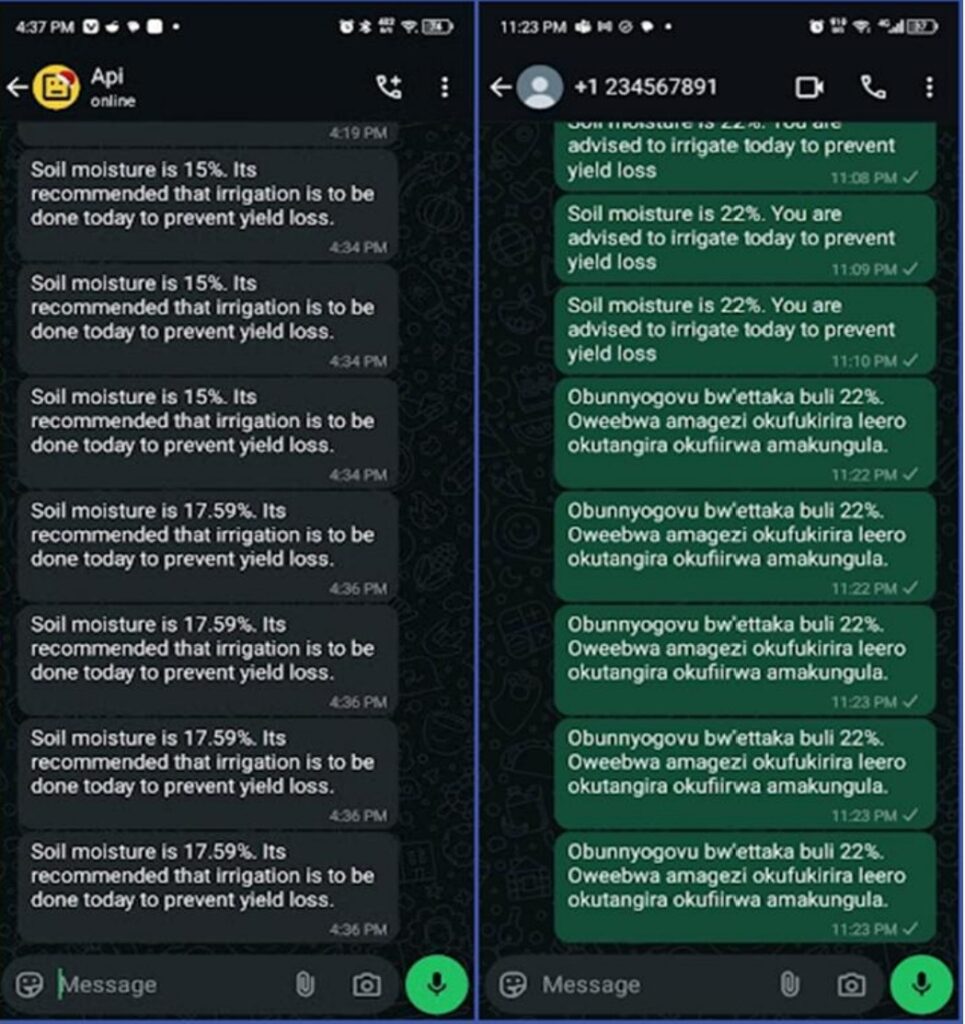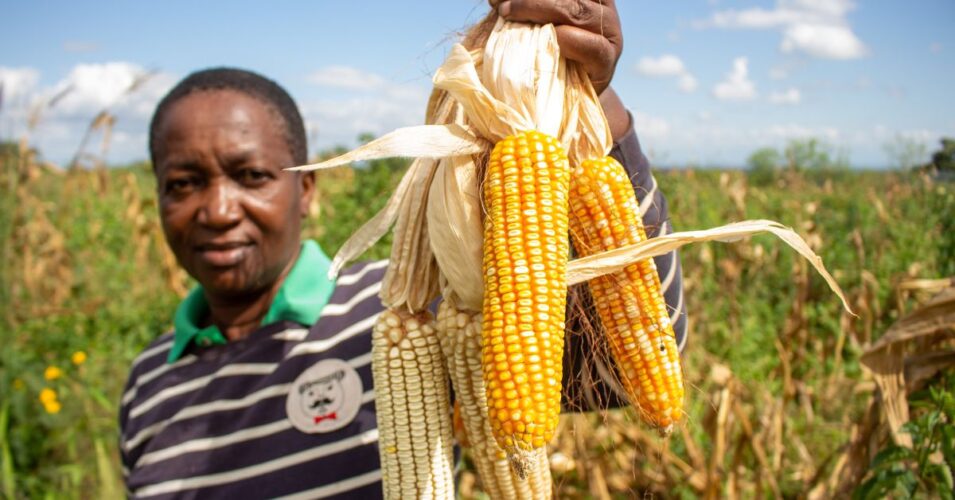Maize is a staple crop in Uganda and one of the major source of livelihood for small-scale farmers in the country, but climate change has become more and more of a threat in the field. With over 85% of Uganda’s farmers relying on rainfall to water their crops, unpredictable weather patterns and dry spells are causing crop losses of up to 40%. Traditional irrigation systems have proven to be inefficient as they tend to either deliver too much water in rainy seasons or too little when it’s dry, causing soil erosion and decreasing yields.
To address this issue, a team of researchers from Makerere University led by Nomugisha Godwin and Dr. Mwebaze Johnson, proposed a cost-effective Internet of Things (IoT) framework that could help smallholder farmers deal with the effects of climate change in their crops and increase yields by up to 22%. Though not yet published in a peer-reviewed journal, the preliminary results of their study is available on the arXiv preprint site.

A visual representation of how data is being processed by the IoT system. Photo courtesy of Nomugisha Godwin and Dr Mwebaze Johnson and retrieved from researchgate.net
This research introduces a smart farming system that prioritizes simplicity and affordability. Guided by the Food and Agriculture Organization’s (FAO) Crop Water Requirement Model, small sensors are buried in the soil where maize crops are planted and these sensors measure moisture every five minutes, while other devices check temperature and humidity. All this data is sent in real-time to an online platform using a microcontroller called ESP32 and a communication protocol known as MQTT—which works even in places with weak internet signals.
Through the ThingSpeak cloud, the system sends personalized irrigation advice straight to farmers’ phones via SMS or WhatsApp, communicating the state of their crops in both the English and Luganda language. Even if the user does not have a smartphone, a basic mobile can receive the irrigation alerts.

A sample screenshot of how the SMS alerts on soil quality are received by a mobile phone. Photo courtesy of Nomugisha Godwin and Dr Mwebaze Johnson and retrieved from researchgate.net
Simulations showed that this IoT system could reduce water usage by 27.3% and increase maize yields by 22%. This is around 200 more kilograms of maize per acre which is enough to feed five people for an extra two months. Using low-cost sensors like the FC-28 for soil moisture and DHT22 for temperature or humidity, the system’s total setup cost is only about $50 per farm. These devices also save energy as it consumes 15% less power than traditional systems which makes it eco-friendly while being ideal for rural communities.
Its potential impact in the community is one of the highlights of this study. Small-scale farmers with no irrigation experience now have access to reliable information which they can use to make informed decisions. Women, who form a major part of the country’s agricultural workforce, will also benefit from the reduced labor. Farmers gain more time and income from the increased yields to invest in health, education, or expanding their farms.
The system also recognizes the social and cultural context. Alerts are in local languages to make it easily understandable and no complicated tech skills are needed to use it. This study is part of a growing collection of research that shows the potential of combining communication and technology to address major problems in agriculture caused by climate change. Future researchers may look into how similar systems can be applied to other farming areas while incorporating more input from the farmers themselves to ensure that it can be as inclusive as possible within the local context.
To read more about this study, go to this link.
For more stories like this, visit cccomdev.org.
Source:
Godwin, N., & Johnson, D. (21 January, 2025). A smart IoT framework for climate-resilient and sustainable maize farming in Uganda. Retrieved from https://doi.org/10.48550/arXiv.2501.12483
Article contributed by Maria Soledad, CCComDev intern.


Comments are closed, but trackbacks and pingbacks are open.